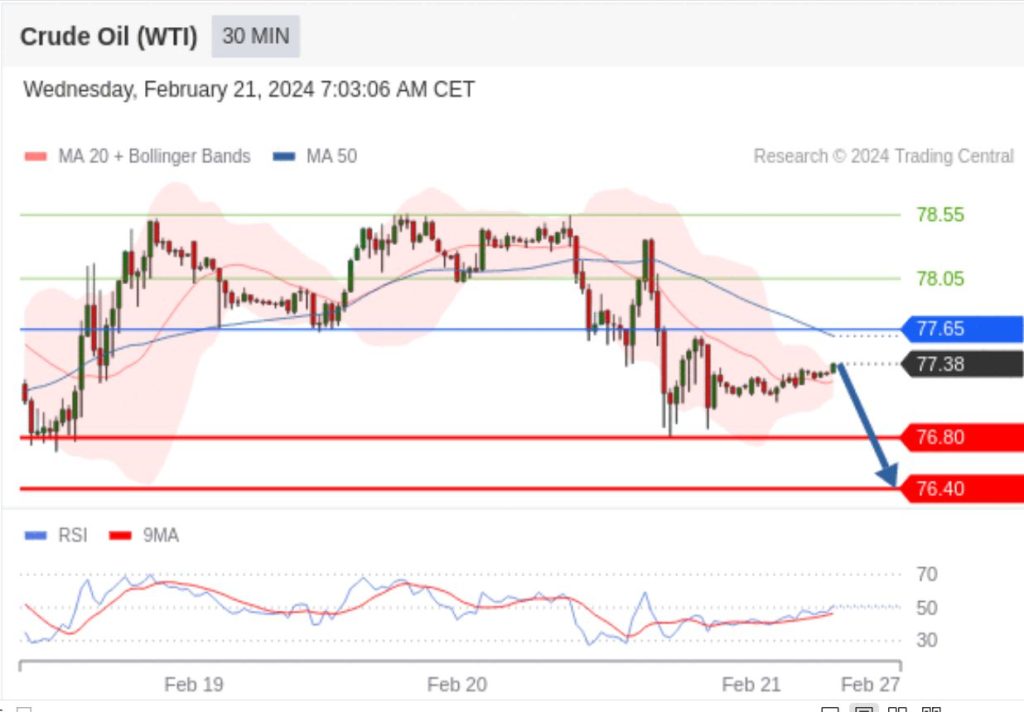- Summary:
- Oil prices have fallen for the second consecutive day, despite a weakening US dollar and recent attacks on cargo ships. What next?
Oil prices fell on Wednesday as demand-side concerns continue to outweigh geopolitical risks in the Middle East. The commodity registered four-day lows, with WTI Crude oil futures trading at $76.48 per barrel, a decline of -0.85% on the daily chart at the time of writing. Similarly, Brent Crude was down -0.80% and trading at $81.77 in the futures market.
The market has largely ignored new developments in the Middle East, amid a push-and-pull between the United States and China over an “immediate” ceasefire proposal forwarded by Algeria. Furthermore, traders seem stoic over reported spikes in Houthi rebel attacks in the Red Sea. For now, concerns over possible oversupply and downsized demand forecasts have taken prominence.
Notably, not even the depreciating US dollar has pumped up demand for the world’s most traded commodity. The greenback has been declining against most of the world’s leading currencies over the past week. The DXY index, which measures the strength of the dollar against six of those currencies, has been on a downward trajectory since February 14th. Meanwhile, Brent has gone down -1.76%, while WTI has lost -2.21% during that period.
The current slump in oil prices is attributed to last week’s global oil market outlook analysis by the International Energy Agency (IEA). The IEA projects a decline in the daily demand growth, from 1.24 million barrels per day to 1.22 million barrels per day. Notably, this outlook contrasts with OPEC’s projections, which show a growth by 2.25 million bpd.
China’s economy has slowed down, and this is expected to impact demand. The world’s second-largest economy lowered its five-year mortgage reference rates from 4.20% to 3.95% on Tuesday, the highest cut on record-but that too has not helped oil prices. The American Petroleum Institute (API) will release its crude inventory figures on Wednesday, ahead of the official release by the Energy Information Agency (EIA) on Thursday. A rise in the API figures could exert more downward pressure on oil later on Wednesday.
Technical analysis
WTI crude price will likely pivot at 77.65, and the bears will likely have control. A move below the pivot level will likely be held by support at 76.80. A continuation of the seller pressure will likely test the next support at 77.40. On the other hand, a break above the pivot price could propel the buyers to attempt breaching the first resistance at 78.05. Look for the next resistance at 78.55 if the 78.05 resistance breaks.



